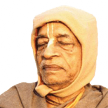Destruction - an essential subject: Difference between revisions
Nayanranjani (talk | contribs) (Created page with "Category:Essential Subjects <!----------------------- edit below this line -----------------------> <!------------------------ begin introduction text below ------------...") |
(Vanibot #0041: Moves Choose Another box to the end) |
||
| Line 2: | Line 2: | ||
<!----------------------- edit below this line -----------------------> | <!----------------------- edit below this line -----------------------> | ||
<!------------------------ begin introduction text below ------------------------> | <!------------------------ begin introduction text below ------------------------> | ||
This material world has been created, is being maintained and in due course of time, will be annihilated (full destruction). These 3 stages show the temporary nature of the world, and prove that everything has an expiry date here. However, although our bodies may be destructed at the time of death, we must realise that our original identities are that we are not this temporary body, but the soul within. This is confirmed by the Bhagavad-gītā which states 'the living entity is never born and he never dies. He is eternal and indestructible, and he continues to live after the destruction of his temporary material body.' | |||
Srila Prabhupada's books, lectures, conversations and letters offer a comprehensive presentation of this essential subject as seen in the Vaniquotes '''[[Vaniquotes:Category:Destruction|Destruction]]''' category. An introduction from his books is given below in the following | Srila Prabhupada's books, lectures, conversations and letters offer a comprehensive presentation of this essential subject as seen in the Vaniquotes '''[[Vaniquotes:Category:Destruction|Destruction]]''' category. An introduction from his books is given below in the following 8 quotes. | ||
<!-------- end introduction text and don't touch next three lines ---------> | <!-------- end introduction text and don't touch next three lines ---------> | ||
---- | ---- | ||
== Quotes from Srila Prabhupada's books == | == Quotes from Srila Prabhupada's books == | ||
<!----------------- edit quote boxes below this line -----------------> | <!----------------- edit quote boxes below this line -----------------> | ||
{{VaniQuotebox| | {{VaniQuotebox|Maya, or illusion, is the condition of spiritual life contaminated by material infection. Liberation from this material infection does not mean destruction of the original eternal position of the living entity|After nirvāṇa, or material cessation, there is the manifestation of spiritual activities, or devotional service to the Lord, known as Kṛṣṇa consciousness. In the words of the Bhāgavatam, svarūpeṇa vyavasthitiḥ: this is the "real life of the living entity." Māyā, or illusion, is the condition of spiritual life contaminated by material infection. Liberation from this material infection does not mean destruction of the original eternal position of the living entity. '''(Bhagavad-gītā 6.20-23)'''}} | ||
{{VaniQuotebox| | {{VaniQuotebox|The Supreme Lord enters the material cosmos and causes creation, maintenance and destruction in their due course, whereas the part-and-parcel living entity enters the material elements and has his material body created for him|The Supreme Lord enters the material cosmos and causes creation, maintenance and destruction in their due course, whereas the part-and-parcel living entity enters the material elements and has his material body created for him. The difference between the living entity and the Lord is that the living entity is part and parcel of the Supreme Lord and has the tendency to be overcome by the interactions of the material qualities. '''(Kṛṣṇa Book, Chapter 48)'''}} | ||
{{VaniQuotebox| | {{VaniQuotebox|Irresponsible work is destructive because it destroys the regulative principles of scriptural injunction|Irresponsible work is destructive because it destroys the regulative principles of scriptural injunction. It is often based on violence and is distressing to other living entities. Such irresponsible work is carried out in the light of one's personal experience. This is called illusion. And all such illusory work is a product of the mode of ignorance. '''(Bhagavad-gītā 18.25)'''}} | ||
{{VaniQuotebox| | {{VaniQuotebox|A great scientist may make discoveries in atomic energy for the quick destruction of the world and may be awarded the best prize in recognition of his service (or disservice)|By the arrangement of supernatural power, even the great scientists and thinkers of the world suffer frustration of their various plans and thus rot in the material world birth after birth. A great scientist may make discoveries in atomic energy for the quick destruction of the world and may be awarded the best prize in recognition of his service (or disservice), but he also has to undergo the reactions of his work by rotating in the cycle of repeated births and deaths under the superhuman law of material nature. '''(Śrīmad-Bhāgavatam 3.9.10)'''}} | ||
{{VaniQuotebox| | {{VaniQuotebox|Because destruction is in the mode of ignorance, Lord Siva and his worshipable Deity, Sankarsana, are technically called tamasi. Lord Siva is the incarnation of tamo-guna|Because destruction is in the mode of ignorance, Lord Śiva and his worshipable Deity, Saṅkarṣaṇa, are technically called tāmasī. Lord Śiva is the incarnation of tamo-guṇa. Since both Lord Śiva and Saṅkarṣaṇa are always enlightened and situated in the transcendental position, they have nothing to do with the modes of material nature—goodness, passion and ignorance—but because their activities involve them with the mode of ignorance, they are sometimes called tāmasī. '''(Śrīmad-Bhāgavatam 5.17.16)'''}} | ||
{{VaniQuotebox| | {{VaniQuotebox|Persons devoid of atma-tattva do not inquire into the problems of life, being too attached to the fallible soldiers like the body, children and wife. Although sufficiently experienced, they still do not see their inevitable destruction|Persons devoid of ātma-tattva do not inquire into the problems of life, being too attached to the fallible soldiers like the body, children and wife. Although sufficiently experienced, they still do not see their inevitable destruction. '''(Śrīmad-Bhāgavatam 2.1.4)'''}} | ||
{{VaniQuotebox| | {{VaniQuotebox|Whatever can be created by the manipulation of matter is destructible and temporary. In contrast, the living spark is indestructible, precisely because it can never be constructed by any combination or quantity of matter|Experienced material scientists have been obliged to accept the fact that the living spark cannot be duplicated by material science. Whatever can be created by the manipulation of matter is destructible and temporary. In contrast, the living spark is indestructible, precisely because it can never be constructed by any combination or quantity of matter. We can produce material atomic bombs but not the spiritual spark of life. '''(Message of Godhead, Chapter 1)'''}} | ||
{{VaniQuotebox| | {{VaniQuotebox|When it is recommended that one be desireless, it is understood that one should not desire things which are destructive to spiritual values. A devotee of the Lord always has the Lord in his mind, and thus he does not need to be desireless|The theory of becoming desireless is untenable because the mind cannot be made desireless. When it is recommended that one be desireless, it is understood that one should not desire things which are destructive to spiritual values. A devotee of the Lord always has the Lord in his mind, and thus he does not need to be desireless because all his desires are in relationship with the service of the Lord. '''(Śrīmad-Bhāgavatam 3.12.26)'''}} | ||
<!----------------- edit quote boxes above this line -----------------> | <!----------------- edit quote boxes above this line -----------------> | ||
| Line 31: | Line 31: | ||
'''Destruction - [[Vaniquotes:Category:Destruction|explore more within this category]]'''. | '''Destruction - [[Vaniquotes:Category:Destruction|explore more within this category]]'''. | ||
{{EsentialSubjectTotal}} | {{EsentialSubjectTotal}} | ||
<div style="float:left;"> | |||
{{EssentialSubjectnav}} | |||
</div> | |||
__NOTOC__ | __NOTOC__ | ||
__NOEDITSECTION__ | __NOEDITSECTION__ | ||
Latest revision as of 16:07, 22 November 2020
This material world has been created, is being maintained and in due course of time, will be annihilated (full destruction). These 3 stages show the temporary nature of the world, and prove that everything has an expiry date here. However, although our bodies may be destructed at the time of death, we must realise that our original identities are that we are not this temporary body, but the soul within. This is confirmed by the Bhagavad-gītā which states 'the living entity is never born and he never dies. He is eternal and indestructible, and he continues to live after the destruction of his temporary material body.'
Srila Prabhupada's books, lectures, conversations and letters offer a comprehensive presentation of this essential subject as seen in the Vaniquotes Destruction category. An introduction from his books is given below in the following 8 quotes.
Quotes from Srila Prabhupada's books
Destruction - explore more within this category.
Vanipedia has now over 903 introductory articles compiled from Srila Prabhupada's books under the series titled Essential Subjects. All these articles can be seen in the Table of Content on the right side of this article and also here in this Umbrella Category. Browse through them to relish the breadth and depth of Srila Prabhupada's teachings - There is a subject for everyone.







